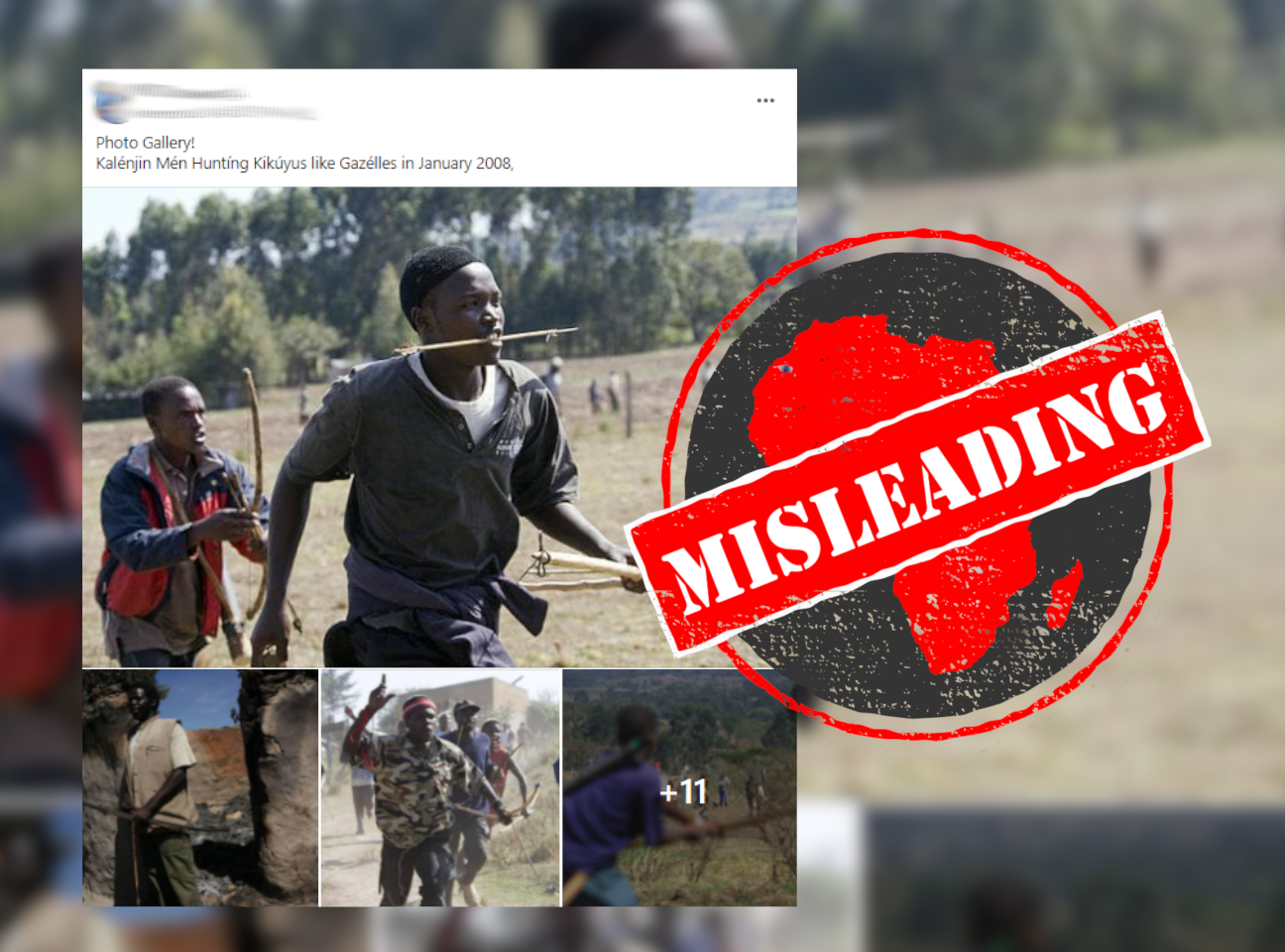As the 2022 presidential elections approaches, memories of tribal clashes that engulfed Kenya after the 2007 disputed elections are being dredged up, it seems for political gain.
On 24 November 2021, dozens of images were shared on Facebook with claims that they show men from the Kalenjin community hunting down people from the Kikuyu community.
“Photo Gallery! Kalenjin Men Hunting Kikuyus like Gazelles in January 2008,” reads a post shared by a Facebook page with over 55,000 followers.
The Kalenjin are a community of people in the Rift Valley region in Kenya, while the Kikuyu community mainly live in the central region of the country.
There have been violent clashes between the Kikuyu and the Kalenjin in the past. But do these photos show the Kikuyu being targeted? We checked.

Post-election enthnic violence
A reverse image search of one of the photos led us to the rest, published by Getty Images.
The captions say that the photos show Kenyans engaging in ethnic clashes, but don’t mention that any of them are Kikuyu.
According to Getty, the photos show people from the Kalenjin, Kisii and Maasai tribes.
One caption reads: “Kalenjin warriors charge up a hill during a bow and arrow battle against the Massai in the Kapune hill in the Olmelil valley located in the Transmara District on March 1, 2008 in Western Kenya.”
Another caption says: “A man belonging to the Kalenjin tribe runs with his bow and arrow as he and others charge against a group of Kisii tribes people in a field adjacent to the western Kenyan town of Sotik 03 February 2008.”
The clashes were reportedly also linked to land disputes that erupted after botched local elections.
Republish our content for free
For publishers: what to do if your post is rated false
A fact-checker has rated your Facebook or Instagram post as “false”, “altered”, “partly false” or “missing context”. This could have serious consequences. What do you do?
Click on our guide for the steps you should follow.
Publishers guideAfrica Check teams up with Facebook
Africa Check is a partner in Meta's third-party fact-checking programme to help stop the spread of false information on social media.
The content we rate as “false” will be downgraded on Facebook and Instagram. This means fewer people will see it.
You can also help identify false information on Facebook. This guide explains how.





Add new comment